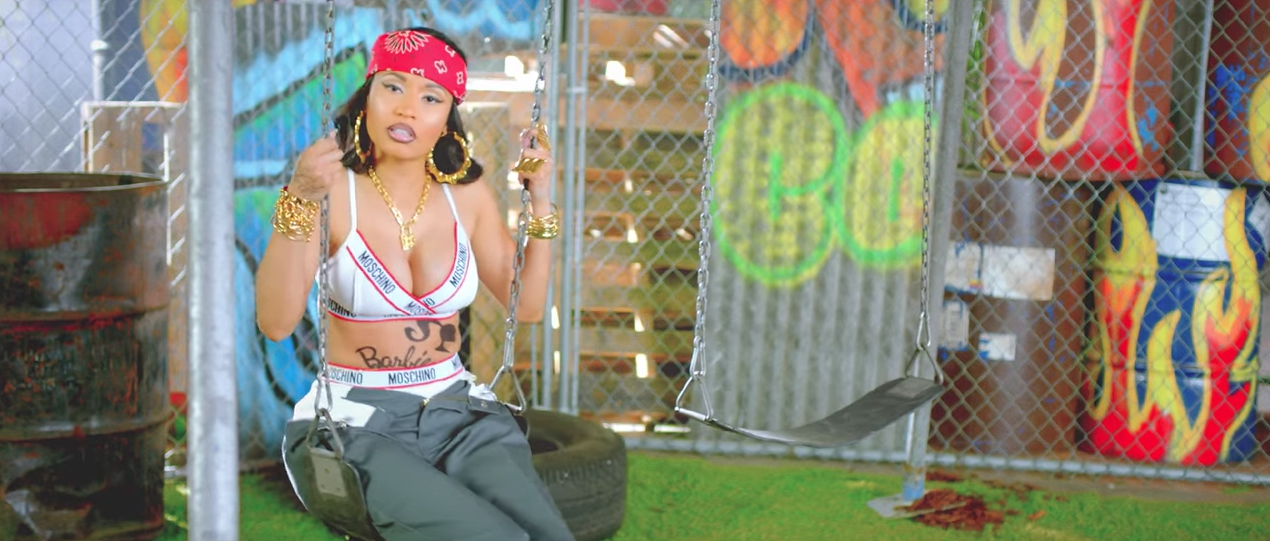Last summer, it was practically impossible to walk around Brooklyn and not hear Carlos Santana’s guitar riff on “Wild Thoughts” blaring from a passing car. Or avoid Justin Bieber’s ubiquitous “Despacito” remix, with its Spanglish overlay. Of course, Latin-influenced pop has been playing on the radio in the U.S. for quite a while. In the 90s, singers like Selena and Ricky Martin found crossover success, followed by Jennifer Lopez and Shakira in the early 00s. But in 2017, Latin music dominated U.S. airwaves in an unprecedented way: “mainstream” pop and Latin pop became indistinguishable from each other. Rap tracks like Swae Lee’s “Unforgettable” and Cardi B’s “Bodak Yellow” received Spanglish remixes that became urban radio mainstays. While pop stars like Nicki Minaj and Beyoncé hopped on reggaeton bangers. These collabs were cross-pollinations of cultures. And it looks like these multicultural collabs and remixes are going to get even more popular.
The irony of this trend is obvious. While President Trump was making serious efforts to build a “wall” along the U.S.–Mexico border this year, we were all singing in Spanish. If anything, “Despacito” spending 16 weeks at number one only highlights the rising visibility of Latin American culture. Because — with Hispanics making up 17.6% of the nation’s population (the country’s largest minority group) — Latin culture is very much a part of American culture. Case in point: primetime shows like Ugly Betty, Queen of the South, and Jane the Virgin that were adapted from Spanish-language telenovelas. It makes sense that international Spanish-language hits are being adapted for American ears too.
American pop stars have been brushing up on their Spanish skills for a while now. There’s “Te Amo” by Rihanna, “Alejandro” and “Americano” by Lady Gaga, and “Change Your Mind (No Seas Cortes)” by Britney Spears. And, as usual, Beyoncé took things one step further. In 2006, she released an entire EP of songs recorded in Spanish (Irremplazable). It featured Queen Bey singing with some of the biggest Latin pop stars, including reggaeton artist Voltio and Mexican pop star Alejandro Fernández. One of the greatest moments from the 2007 release was Beyoncé and Shakira’s collaboration “Beautiful Liar.” The song’s production was a true hybrid of R&B and Latin pop, featuring enchanting Spanish guitar, flamenco-style handclaps, and early-Destiny’s Child-esque lyrics about a cheating boyfriend. The mashup of genres was also highlighted in the music video. The fog-heavy visual featured Beyoncé and Shakira becoming twins, quick jump cuts making it difficult to tell who was who. It was a mixing of musical identities.
Of course, some people have called these moments cultural appropriation. Justin Bieber’s “Despacito” remix sparked plenty of think pieces. There’s the fact that, too often, a cultural genre or sound becomes trendy only after a white pop star takes part in it. The popularity of vogueing — which was born at underground “balls” thrown by queer men of color — skyrocketed after Madonna released her iconic “Vogue” video in 1990. In the early 00s, pop stars like Justin Timberlake, Britney Spears, and Christina Aguilera used hip-hop and R&B producers to help shed their cookie-cutter images (Miley Cyrus would later do the same in 2013).
Petra Rivera-Rideau, a cultural studies professor at Wesley College, unpacked the race politics behind the “Despacito” remix. “One of the frustrating things about the media coverage is there’s a lot of emphasis on Bieber,” she said in an interview. “Whenever Latin artists have crossed over into the U.S. they have been presented as ‘new discoveries.’ Like in the 90s, we had the so-called ‘Latin Boom’ with Ricky Martin, Shakira, and Enrique Iglesias, who were incredibly popular in Latin pop music already.”
Thankfully, new Latin American artists are rising in pop music — and no longer being marketed as “exoctic” acts. Musicians like Cardi B, who has Dominican heritage, and Camila Cabello, a Cuban-American, look set to become pop supernovas. Camila’s first single, “Havana,” was soaked in Cuban influences and featured a cha cha-friendly rhythm. To top it off, Camila performed a Spanglish version of the song at the Latin American Music Awards that was a high-level celebration of her culture. And Cardi B has packed plenty of shoutouts to Latin American culture in her raps, including a killer line about Sazón seasoning and nicknaming herself the “Trap Selena.” These moments don’t feel like performances of identity for white listeners (like when Jennifer Lopez randomly did the salsa in her “If You Had My Love” video). They feel like organic forms of self-expression.
There can be power in having a white audience listen to lyrics explicitly about POC experiences. The fact that the majority of hip-hop listeners are white has illustrated this. Artists like Kendrick Lamar, Frank Ocean, and Jay-Z have used the genre’s large platform to talk about poverty, police killings of unarmed men, and toxic black masculinity — prompting vital conversations and increasing the visibility of POC artists in pop culture. Perhaps this year’s rising generation of Latin American pop stars will be able to do the same. Because we wouldn’t be surprised if Cardi B was talking about breaking down cultural boundaries, and not sex, when she rapped, “I’ll turn a white boy on Sazón.”
